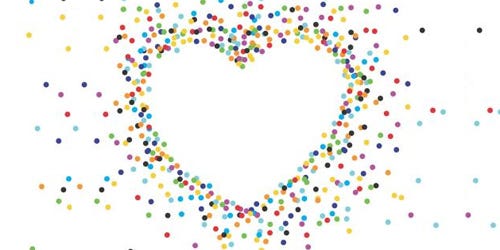
Introduction
Understanding Dating Algorithms
In today’s digital world, dating algorithms have transformed how people connect. These complex systems analyze user data to recommend potential matches based on shared interests, values, and preferences. They can be likened to matchmakers operating at lightning speed. For instance, when Sarah signed up for a dating app, she completed a detailed questionnaire, which the algorithm used to find compatible partners.
Gradually, users were introduced to the concept of algorithms, which rely on patterns to predict compatibility. This shift has changed the dating landscape dramatically, making it faster and more efficient.
Evolution of Dating Algorithms
The journey of dating algorithms is fascinating:
- Early Days: Simple text-based dating sites only matched based on a few parameters like age and location.
- Growth Phase: The introduction of personality tests allowed platforms to refine matches further.
- Current Technology: Today’s algorithms utilize machine learning and immense data sets to improve accuracy continuously.
For example, platforms like Tinder and OKCupid have moved from basic parameters to sophisticated AI-driven systems that adapt and learn from user behavior. This evolution has transformed how individuals find love and companionship today.

Science behind Dating Algorithms
Data Analysis in Dating Algorithms
After the initial connection between technology and dating, the next phase focuses heavily on data analysis. Dating algorithms utilize vast amounts of user data to refine their matchmaking process, sifting through countless profiles to identify patterns and preferences. For instance, when John swiped right on profiles with specific hobbies and interests, the algorithm took note, prioritizing similar attributes in future recommendations.
- User Preferences: Likes, dislikes, and interests.
- Interaction History: Messages and swipes contribute to understanding user behavior.
This data-driven approach is foundational in creating a more tailored dating experience for users.
Behavioral Psychology in Algorithms
Behavioral psychology plays a crucial role in how these algorithms operate. They not only analyze what users say they want but also observe how they behave. For instance, when Lisa consistently engages with profiles of outgoing individuals, the algorithm learns her attraction to that trait, adjusting future matches accordingly.
By considering psychological theories such as the similarity-attraction effect, dating algorithms:
- Leverage shared interests and values to foster connections.
- Identify trends in user interactions to enhance future matchmaking.
This blending of data with psychology ensures that algorithms evolve beyond mere statistics, aiming to understand the emotional aspects of dating.
Compatibility Metrics in Algorithms
Compatibility metrics are the backbone of effective matchmaking. Algorithms assess potential partners on various scales, ensuring greater accuracy in matching. When Mark filled out his dating profile, various metrics like core values, interests, and lifestyle choices were evaluated.
Some key metrics include:
- Demographic Compatibility: Age, education, and location.
- Interpersonal Alignment: Communication styles and relationship goals.
- Lifestyle Choices: Habits, hobbies, and daily routines.
By weighing these factors, dating algorithms aim to enrich the user experience, leading to more meaningful connections and successful relationships. The science behind these algorithms has truly reshaped how individuals seek romantic partners in a digital age.

Impact of Dating Algorithms
Success Rates and Statistics
As dating algorithms have evolved, their impact is evident through various success rates and statistics. Many users have reported finding meaningful relationships because of these systems. For instance, a recent survey showed that over 30% of couples met through dating apps, with many citing algorithm-based matchmaking as a contributing factor.
- Increased Matching Rates: Users experience a higher number of compatible matches.
- Long-term Relationships: Studies found that couples meeting online tend to have stronger, longer-lasting relationships.
However, while algorithms show promise, it’s crucial to delve deeper into their effectiveness and what success truly means in the modern dating landscape.
Ethical Concerns in Algorithm-based Dating
Despite the advantages, ethical concerns loom large over algorithm-driven dating. Issues surrounding privacy, data usage, and bias are significant. Take Emma, for example; she was uncomfortable when she learned that her data was being sold to third parties, questioning the ethics behind user consent.
Some prevalent concerns include:
- Data Privacy: Users may unknowingly share sensitive information.
- Bias in Algorithms: If not correctly calibrated, algorithms can perpetuate societal biases, leading to less diverse matches.
Addressing these ethical dilemmas is essential to ensuring dating algorithms serve users’ best interests, promoting a safe and respectful online dating environment for everyone.

Future Trends in Dating Algorithms
Artificial Intelligence in Dating Algorithms
As technology advances, artificial intelligence (AI) is poised to revolutionize dating algorithms even further. AI will enable platforms to analyze user behavior at an unprecedented level, learning not just from explicit preferences, but also from implicit ones. Imagine if Jake’s dating app could swiftly discern his preferences just by tracking his swiping patterns and messaging styles.
- Predictive Matching: AI will anticipate potential matches before users even express interest.
- Enhanced User Experience: Through chatbots, users can enjoy personalized interactions, making the journey smoother and more engaging.
This cutting-edge technology promises a transformative approach to how we connect romantically.
Personalization and Tailored Matches
The future of dating algorithms is leaning heavily towards personalization, ensuring that users receive tailored matches that resonate deeply with them. With advancements in data analysis and AI, platforms can now offer unique experiences that reflect individual preferences. Consider Claire, who appreciates a dating app that takes her environmental values into account—she is likely to receive matches who share her passion for sustainability.
Key trends in personalization include:
- Dynamic Questionnaires: Adapting questions based on user responses to gather deeper insights.
- Real-time Feedback: Incorporating continuous user feedback to refine match suggestions instantly.
As dating algorithms grow more sophisticated, the emphasis on personalization will likely lead to more meaningful connections, making the quest for love more enjoyable than ever before.

Conclusion
Effectiveness of Dating Algorithms
Reflecting on the effectiveness of dating algorithms, it’s clear they have significantly altered how we navigate the complex world of relationships. Many users, like Mike and Jenna, have happily reported finding their partners through these platforms, attributing their success to the carefully curated matches provided by algorithms.
- Statistical Success: Increased numbers of users finding long-term relationships.
- User Satisfaction: Many feel more empowered as they connect with like-minded individuals.
These algorithms streamline the dating process, making it more efficient and tailored to individual needs.
Reflection on the Role of Algorithms in Modern Dating
As we embrace the role of algorithms in modern dating, it’s important to recognize both their benefits and limitations. They have provided immense growth and connectivity in our relationships; however, users must remain vigilant about their data privacy and the potential for bias.
Ultimately, while algorithms can enhance the dating experience, the human touch remains irreplaceable. As one relationship expert puts it, “Algorithms can help guide you, but personal connection will always drive successful partnerships.” In this rapidly evolving landscape, finding love may be more complex, but with dating algorithms, it is surely an adventure that many are willing to embark upon.
